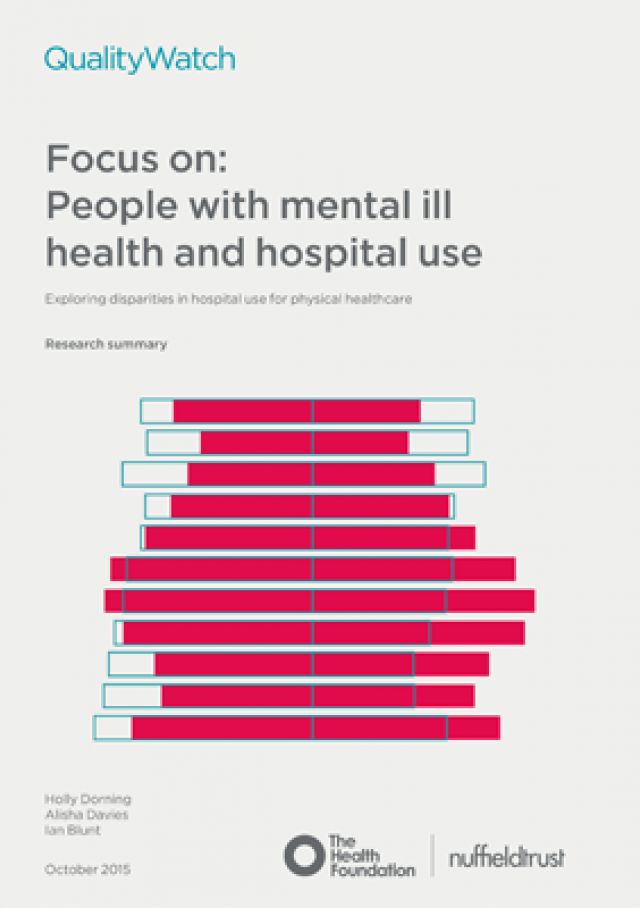Focus on: People with mental ill health and hospital use Exploring disparities in hospital use for physical healthcare
October 2015

Key questions addressed
- Do people who have previously used hospital services for mental ill health go on to use more hospital care than those who have not?
- If so, are there other factors, beyond mental ill health, explaining these differences?
- Do people with mental ill health have more potentially preventable hospital admissions than those without?
- Are people with mental ill health more likely to have an emergency rather than planned admission or stay longer in hospital for common physical health procedures than those without?
At any time, one in six adults has a mental health condition and one in 100 has a severe mental illness. People with mental ill health die younger, and a greater proportion have poor physical health compared to the general population. These differences are most profound for people with serious mental illnesses, such as psychosis or bipolar disorder, who die on average 10 to 17 years earlier than the general population.
Disparities between the physical health of people with mental health conditions and the general population have been recognised for more than two decades, and in recent years there has been a greater policy focus on achieving ‘parity of esteem’ between mental and physical health. However, in order for these measures to be effective, we must improve our understanding of how people with mental ill health use hospital services – both in terms of how much care they use and what type of care they use.
Our new research uses Hospital Episode Statistics (HES) data to study planned and emergency inpatient admissions, outpatient admissions and A&E attendances over five years. Focusing on patients aged between 18 and 74, we analysed around 100 million care events per year.
Our hope is that this research will inform the work of policy-makers, commissioners and providers as they strive to improve the quality of physical health care for people with mental ill health and work towards achieving parity of esteem.
Downloads
Work with us
We look for talented and passionate individuals as everyone at the Health Foundation has an important role to play.
View current vacanciesThe Q community
Q is an initiative connecting people with improvement expertise across the UK.
Find out more

